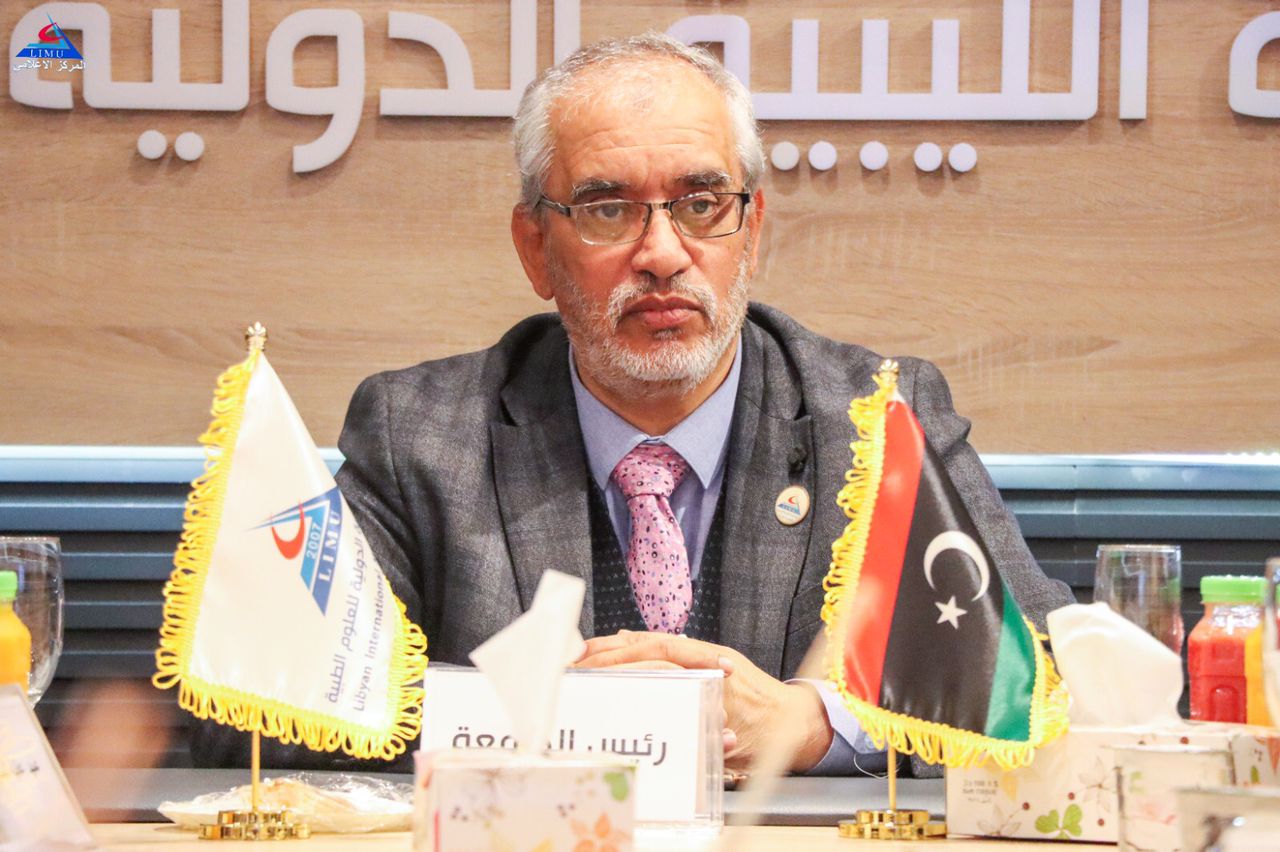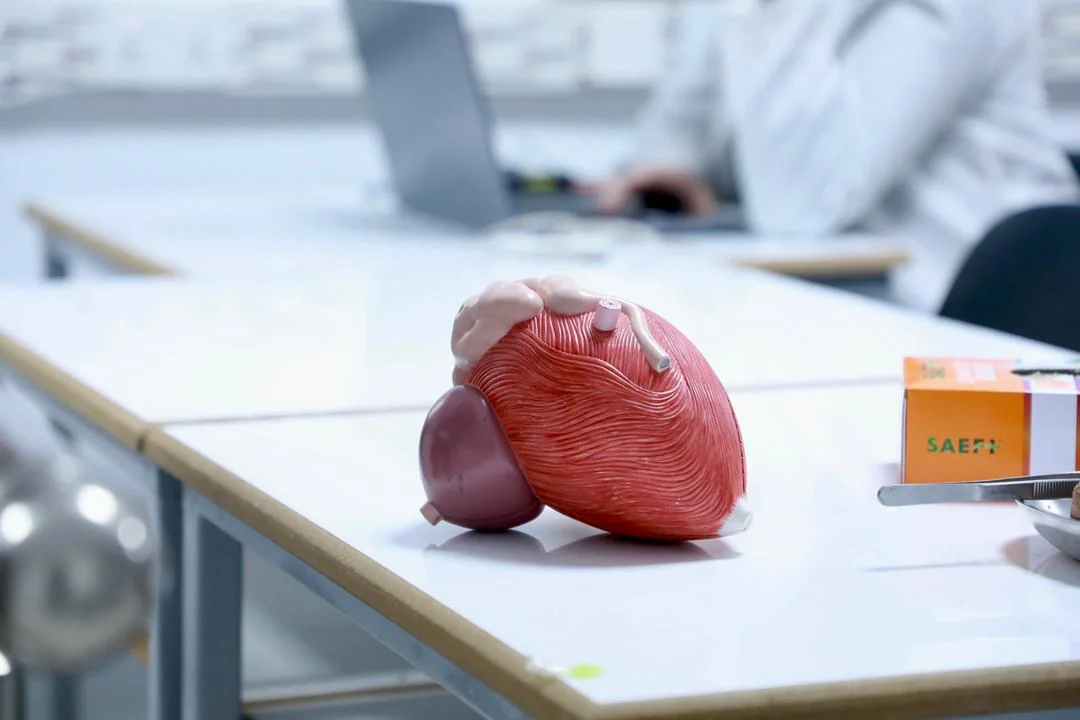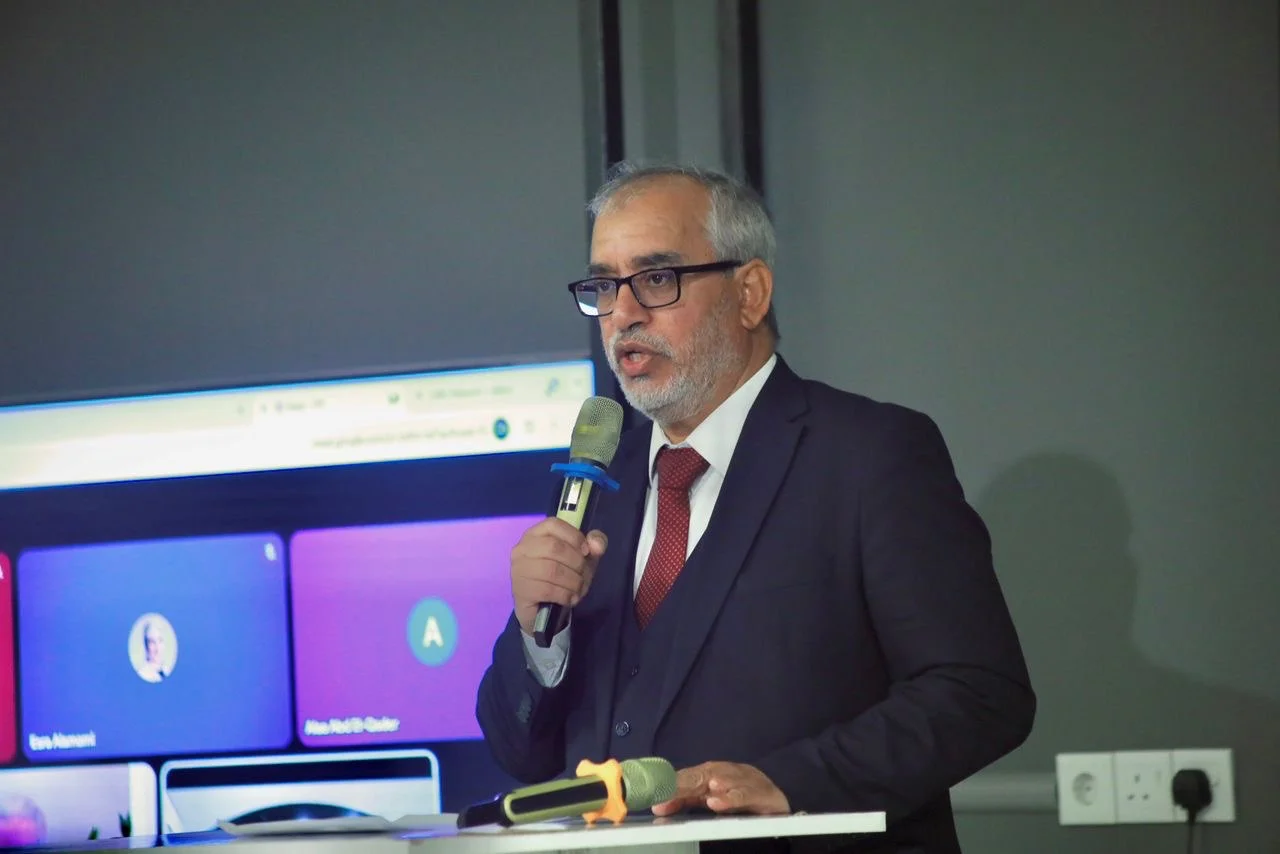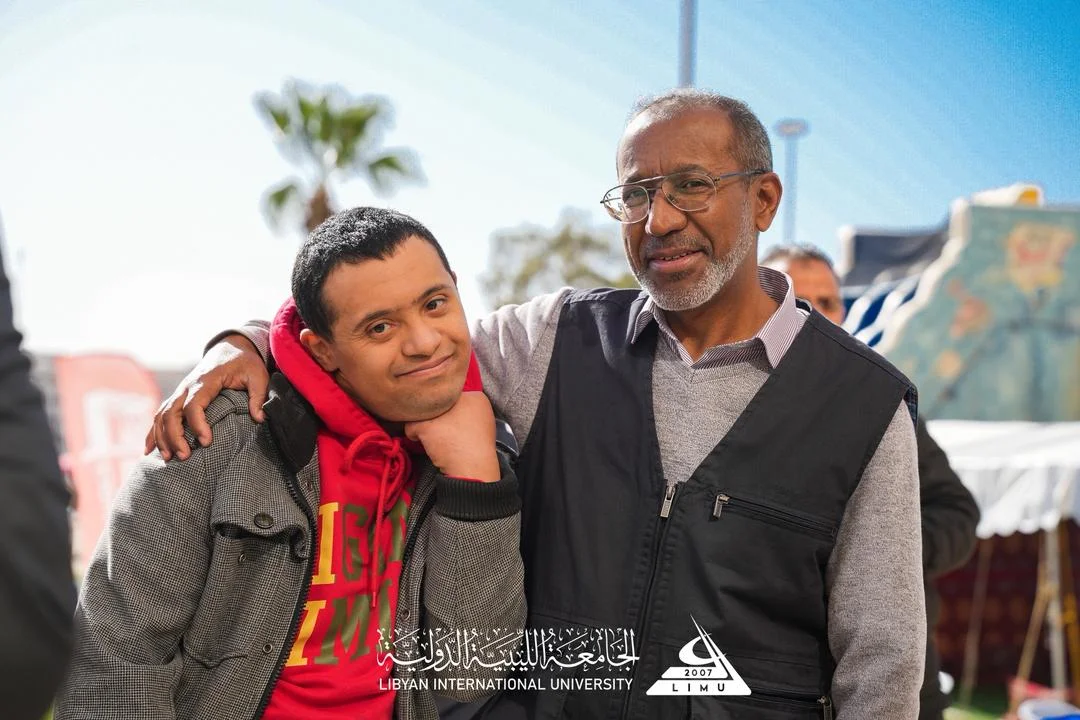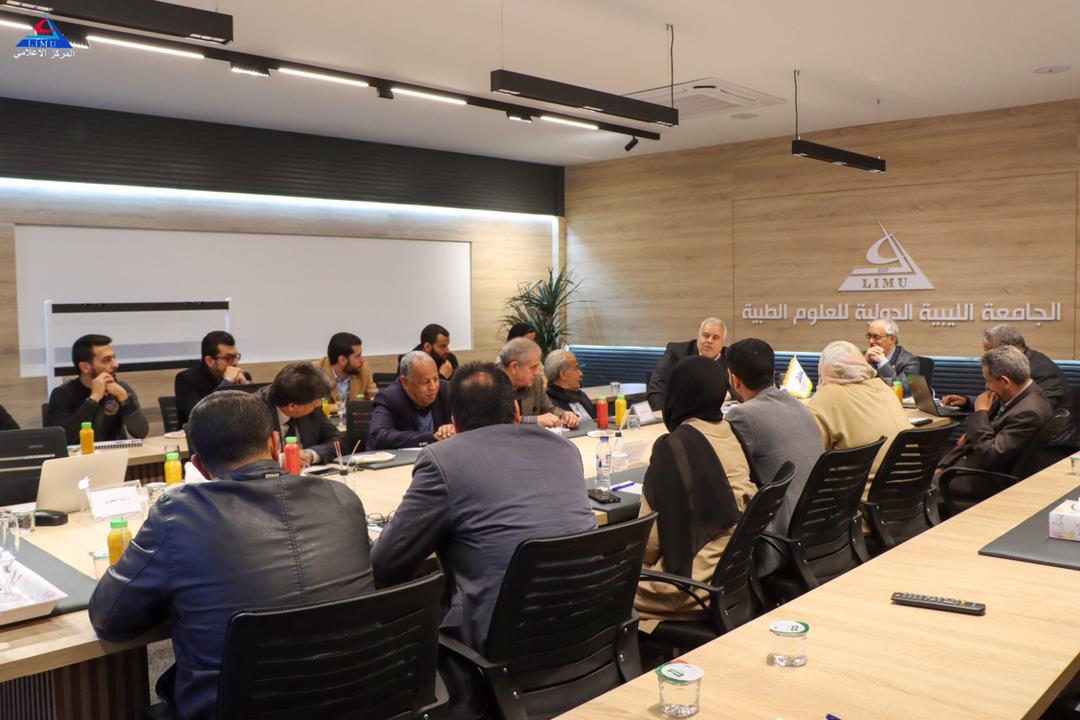
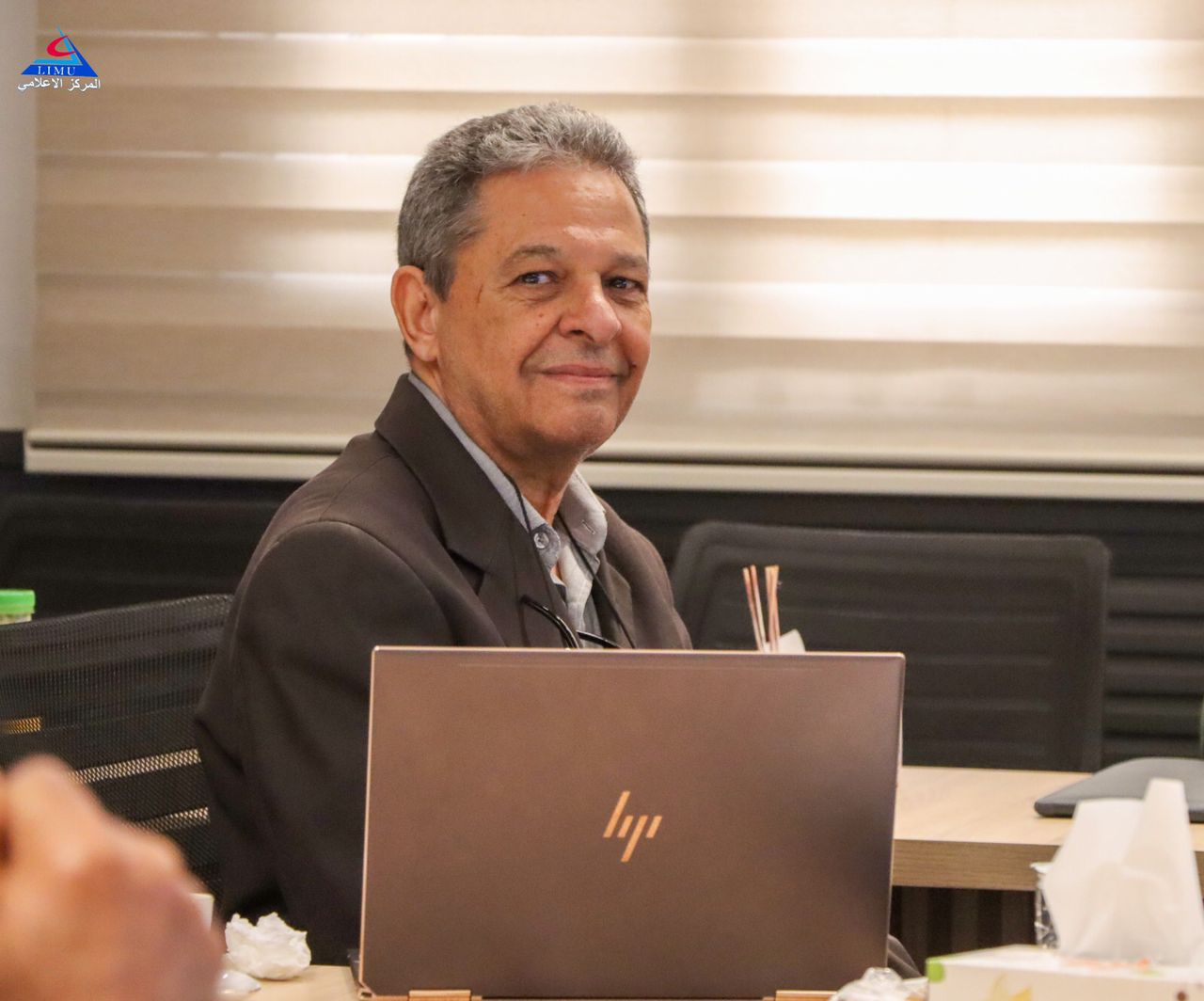
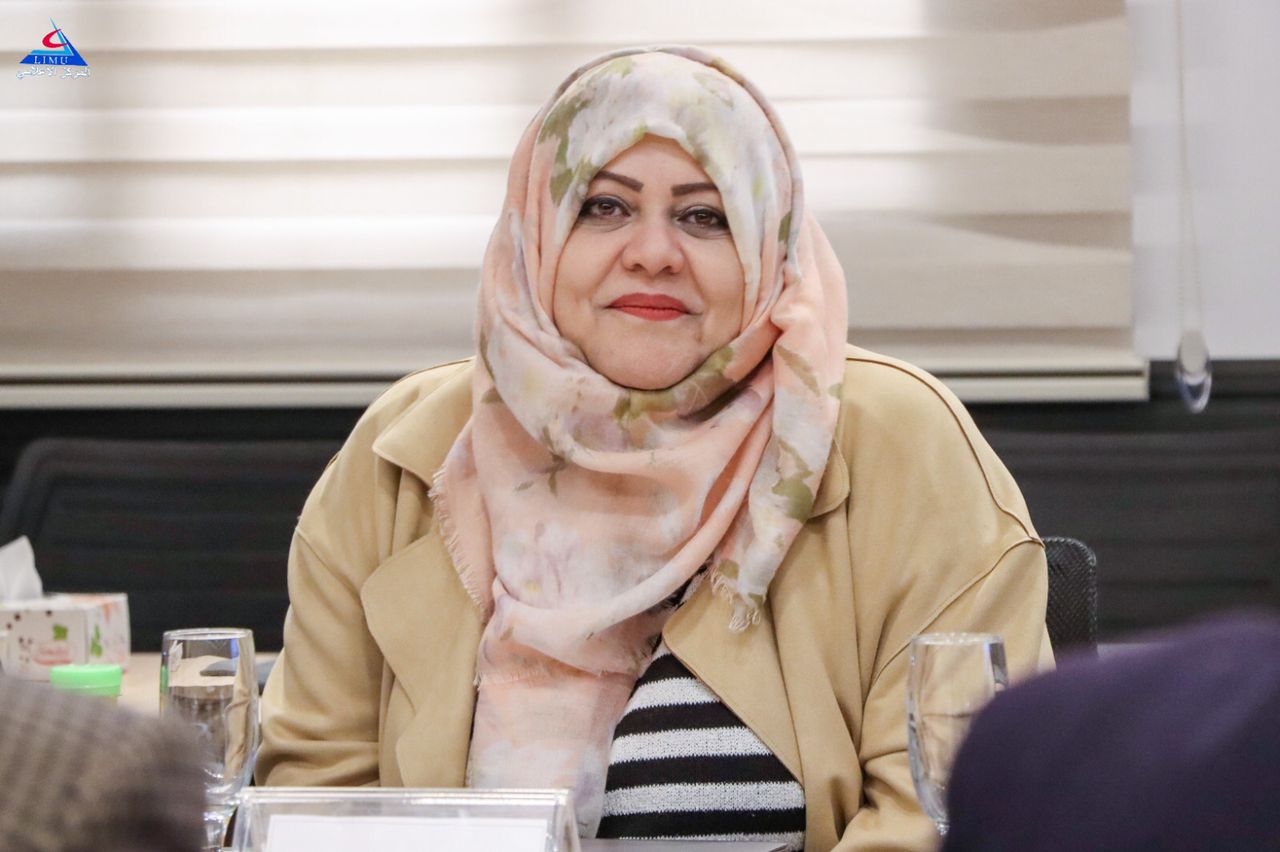
A workshop titled “Pharmaceutical Manufacturing in Libya: Prospects and Aspirations” was held on Monday, March 20, 2023 AD, in the National Unity Hall at the headquarters of the Libyan International University for Medical Sciences. It was organized by the faculty of pharmacy at the university.
Whereas the session provided insight into one of the crucial challenges, namely Libya’s drug security. The workshop’s objectives are to assess Libya’s actual pharmaceutical manufacturing situation and identify the country’s most pressing problems. The workshop was run by Prof. Dr. Suleiman Ibrahim Al-Sharif, a faculty member at the College of Pharmacy, and Dr. Salama Boukhtwa, the Dean of the College of Pharmacy. It was launched by Prof. Dr. Mohamed Saad Embarek, President of the University and Dr. Naila Al-Maghrebi, coordinator of the postgraduate program at the College of Pharmacy, as well as Moasab Al-Barghathi, in charge of the consultation procedure at the university’s Research and Consultation Center. And Mr. / Mrs. A attended the workshop. Dr. Muftah Anwiji, director of the university’s training center, Prof. Omar Al-Dinali, dean of the university’s college of engineering, Dr. Ali Saeed, vice president for community service and the environment, the heads of scientific departments at the university’s faculty of pharmacy, faculty members, and faculty staff, as well as a number of graduates from the university’s faculty of pharmacy, as well as a number of students enrolled in the master’s program in pharmaceutical sciences.
Dr. Saleh Al-Awjali, who spoke about the reality of the Libyan drug market and the sources of readily available and branded medications, Dr. Idris Abu Khamada, who dealt with Libyan law and the regulation of the pharmaceutical industry, and Dr. Mari Al-Jazwi were the workshop’s main speakers. Brig. Muhammad Abu Hadimah, who discussed the role of the regulatory authorities, and Brig. Additionally, Dr. Naila Al-Maghrebi of the College of Pharmacy took part in two discussions about the difficulties faced by the pharmaceutical manufacturing industry, such as ready-made structures and people capable of operating pharmaceutical factories.
Regarding the role that colleges play in bridging the gap between the pharmaceutical sector and scientific research, Naila. The participants emphasized that the motivation and aim of holding this workshop is the humanitarian and national duty represented in contributing to ensuring that citizens of all ages have the right to enjoy the highest standard of health services by developing the health sector in Libya by providing high-quality and reasonably priced medicines, which can be achieved through local pharmaceutical industry.
